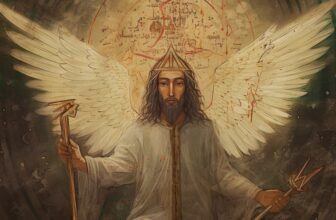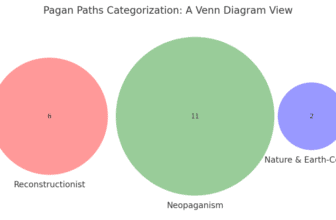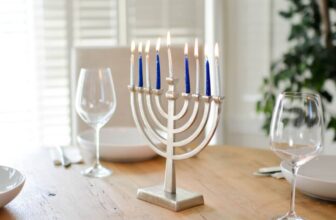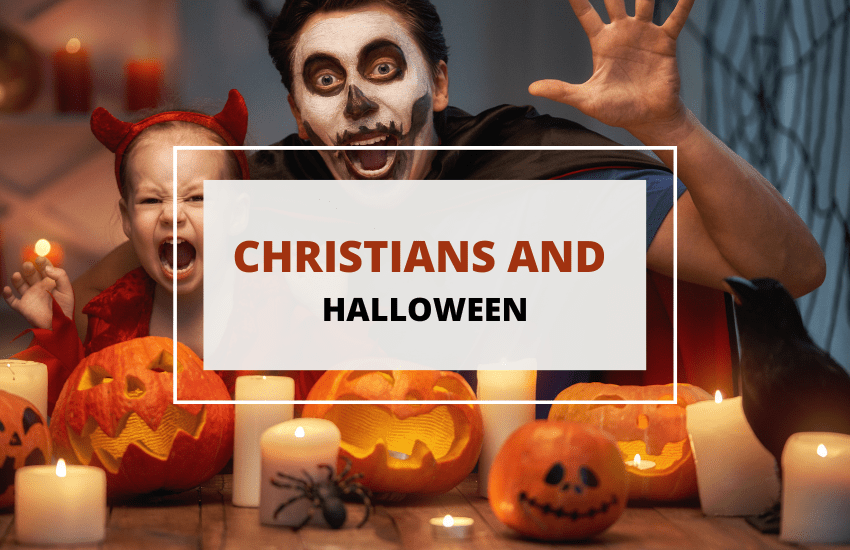
Table of Contents
Every 31st of October comes with plenty of excitement as the stores line up with costumes and candy sales go up to their potential maximum. The annual costume dress-up, trick-or-treating, and carving of pumpkins mark America’s second-largest commercial holiday Halloween, otherwise known as All Hallow’s Eve.
Considering the exuberance and fun that comes with the holiday, no child wants to be left behind as their peers compete to showcase the best costume as well as move from door to door collecting candy.
Yet, for Christians, the celebration of Halloween is a conundrum. In as much as parents want to let their children have in on the fun, they are weary of the connotation of the holiday based on its history. To answer the question of whether Christians should celebrate Halloween or not, we first need to understand how and why it all started.
The Meaning and History of Halloween
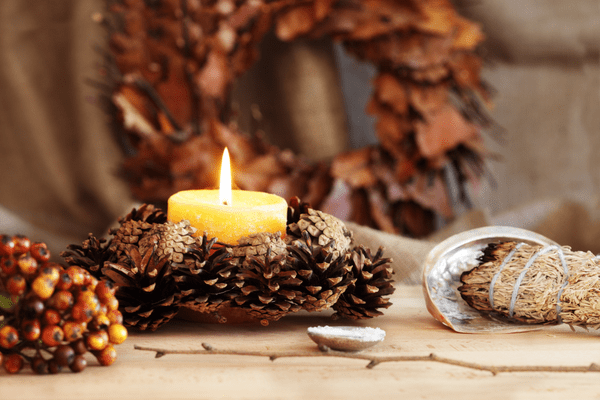
The term Halloween stands for the eve of All Hallows Day (November 1st). The latter, also known to the ancient Celts as Samhain and later to Christians as All Souls Day, originally marked the beginning of a new year and was held in celebration of summer’s harvest. Halloween, therefore, was celebrated the night before the new year.
This day that the Celtic druids revered as the year’s biggest holiday was also believed to be the only day in the year when the souls of the dead were free to mingle with the living, an occurrence marked by the lighting of bonfires, offering of sacrifices, feasting, fortune telling, singing, and dancing.
A more sinister angle to this was that among those that got an allowance to roam, were witches, demons, and evil spirits. This team came in to celebrate the beginning of what was known as their season (the early dark and long nights of winter).
As they roamed freely, the demons had their fun with the defenseless mortals, leaving them with only three ways to defend themselves.
- First, they would leave out curved pumpkins or turnips to ward off evil spirits.
- Second, they would put out sweets and fancy foods to appease the demons known to have sweet teeth.
- Third, they would dress in ghoulish costumes to disguise themselves as a part of the evil crew and roam with them.
This way, the evil spirits would leave them alone.
Roman Influence on Halloween
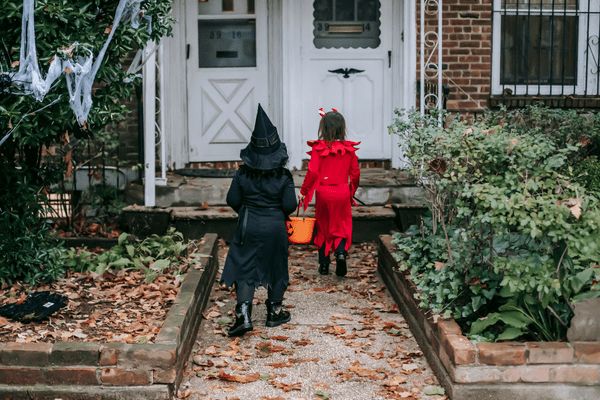
After the conquering of the Celtic lands by the Romans in A.D. 43, Samhain merged with Roman festivals, namely Feralia, the day of the dead, and Pomona, the day of the Roman goddess of trees and fruit.
This amalgam was celebrated by sharing and eating fruits, especially apples. The tradition later spread to neighboring countries with the sharing of fruit being replaced by the giving of candy.
Another contributing tradition was “souling,” whereby children went door-to-door sharing soul cakes and praying for the dead in honor of Feralia. Souling was incorporated into Halloween where rather than giving soul cakes, children receive candy in what is known as trick-or-treating.
How Christianity Borrowed from Halloween
In a more revolutionized Rome, Pope Bonafice IV created All Martyrs’ Day in 609 AD to be practiced on November 1st in honor of early Roman martyrs. Later, Pope Gregory III expanded the feast to All Saints’ Day on November 1st and All Souls’ Day on November 2nd.
These feasts were and still are meant for paying respect to saints in heaven and for praying for the recently departed souls in purgatory, respectively. Originally, the feast of All Souls’ Day carried on the “souling” practice, whereby children went door to door receiving ‘soul cakes’ in exchange for prayers for the departed.
The two feasts were carried on by all Christians until the 16th – 17th-century protestant reformation. The protestants disagreed with the idea of purgatory, stressing that once a soul passes, it cannot be redeemed. There is only heaven and hell for the dead.
Protestant Christians began to use the day to dress as Bible characters or reformers and indulge in prayer and fasting for the souls of the living who still have a chance to redeem themselves.
What Does the Bible Say About Halloween?
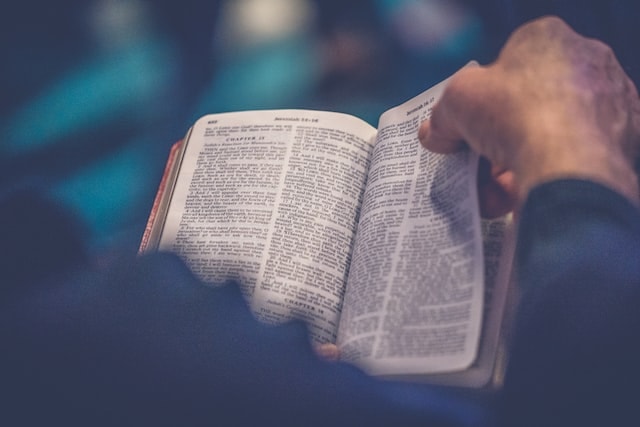
Halloween does not appear directly in the Bible because Christians had not encountered it during the writing of the scripture.
However, there are several verses that can be used as guides to the answer to whether Christians should celebrate Halloween, a pagan festival.
Yet, there is no straight answer; it all depends on the outlook each person has toward the holiday.
There are Christians who choose to abide by the words of 2 Corinthians 6: 17:
“Be ye not unequally yoked together with unbelievers: for what fellowship hath righteousness with unrighteousness? and what communion hath light with darkness?”
2 Corinthians 6: 17
Those that choose this approach abstain completely from the festivities of Halloween.
Other Christians choose to see things differently; instead of ignoring the festivities, they set out to make it a more positive holiday.
“Have I not commanded you? Be strong and courageous. Do not be discouraged, for the Lord your God will be with you wherever you go.“
Joshua 1:9
With these words at heart, Christians need not fear the influence of evil.
“Yeah, though I walk through the valley of the shadow of death, I will fear no evil: for though art with me; thy rod and thy staff they comfort me.”
Psalm 23:4
Moreover, it is the responsibility of Christians to bring light into darkness and that can only be done by involving ourselves and being the light of the world.
“You are the light of the world. A town built on a hill cannot be hidden. Neither do people light a lamp and put it under a bowl. Instead, they put it on its stand, and it gives light to everyone in the house. In the same way, let your light shine before others, so that they may see your good deeds and glorify your Father in heaven.”
Matthew 5:14-16
With this in mind, Christians can find a more ‘Christian way’ to join in the celebrations and overhaul the negativity of it.
“You dear children are from |God and have overcome them because the one who is in you is greater than the one who is in the world.”
1 John 4:4

Here are some suggestions on how Christians choose to celebrate Halloween:
- Trunk-or-treating - As an alternative to trick-or-treating, some churches decorate their car trunks, dress in cute costumes, and give candy and memorial verses to children.
- Non-ghoulish costumes - Carry on with the trick-or-treating tradition only with costumes themed around positive characters from cartoons, books, Bible heroes, or famous historical characters.
- Be hospitable - Halloween is a great time for people to come together and get to know each other better. Christians can use this time to share meals and candy with others in the community and engage them in meaningful, uplifting conversations.
- Get creative - Christians can use this holiday to join and be happy together. This can be an opportunity to do that which brings us closer to each other and closer to God, after all, there is no wrong time to be with God. Psalms 32: 11 Be glad in the Lord and rejoice you righteous ones; And shout for joy all you who are upright in heart. This is also a great time to encourage young people to perform skits that will teach and bring communities together for merriment.
Wrapping Up
Modern-day Halloween is about fun and candy and Christians shouldn’t necessarily feel inclined to miss out on the excitement. Still, you shouldn’t feel pressured to join the celebrations either.
Christians are under no obligation to conform, but to practice discernment as per the words of Romans 12: 2.
“Do not be conformed to this world, but be transformed by the renewal of your mind, that by testing you may discern what is the will of God, what is good and acceptable and perfect.”
Romans 12: 2




